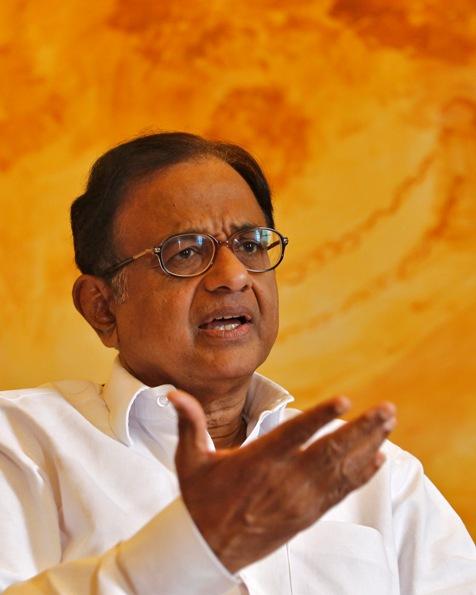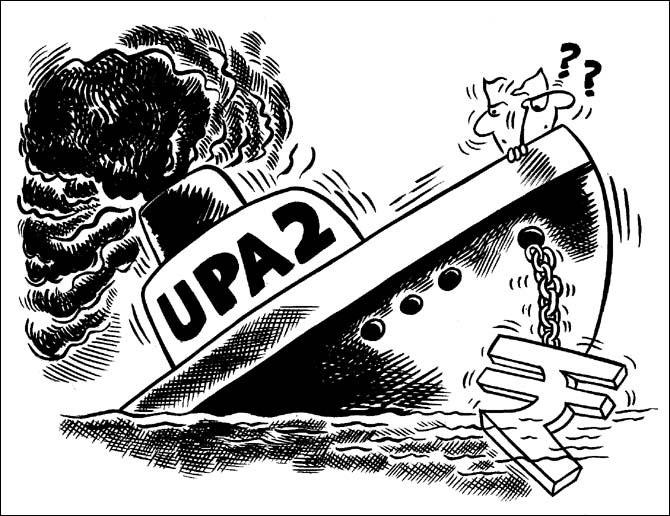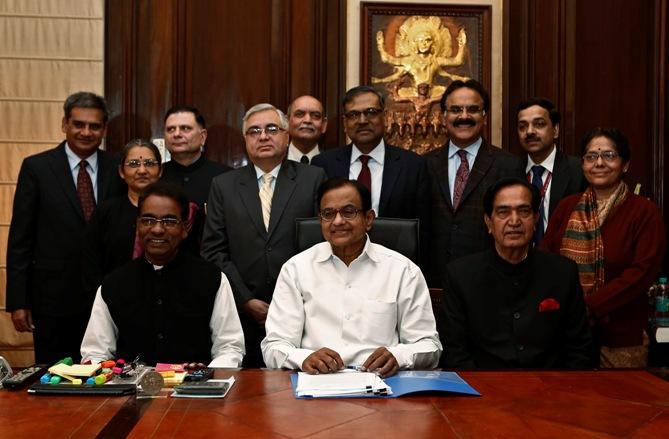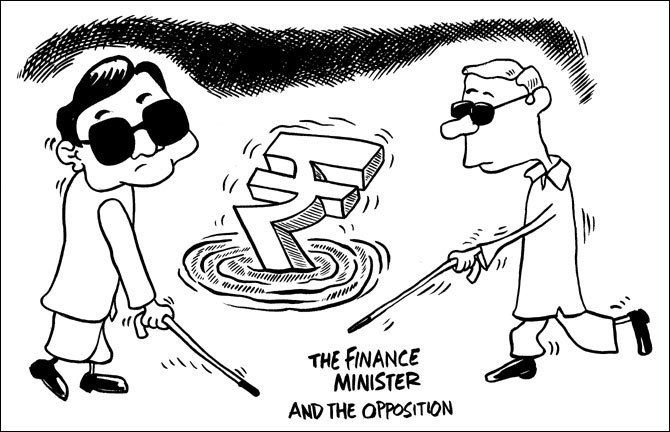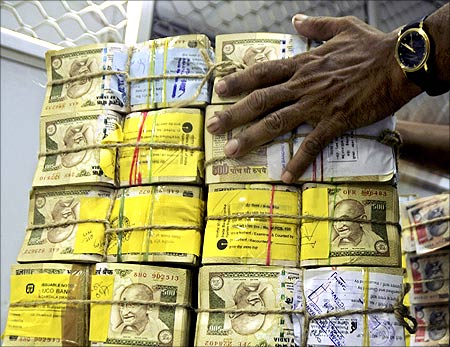 | « Back to article | Print this article |
India's growth: How the 'dream team' failed miserably
The last two years taken together have been the worst that the economy has seen in two decades, in terms of growth, says T N Ninan.
If P Chidambaram's Budget speech was an hour-long attempt at presenting his government's and his own record in a good light - as he is perfectly entitled to do - such a "marketing" effort invites the recounting of an alternative retelling of the record.
How would such an account read? For starters, it could be said that the last two years taken together have been the worst that the economy has seen in two decades, in terms of growth; there is no previous phase in this period when successive years saw sub-five per cent growth.
It could also be said that the last few years have been the worst on inflation; while the finance minister referred in his speech to the latest wholesale inflation rate (5.05 per cent), consumer price inflation is much higher at 8.79 per cent.
Click NEXT to read more...
India's growth: How the 'dream team' failed miserably
Third, if one includes the World Gold Council's assessment of gold smuggling into India (which Mr Chidambaram has served to revive), and takes that into the trade numbers, the current account deficit is above three per cent (not 2.5 per cent) of GDP; the last three years have seen the highest such deficits in at least three decades.
On the rupee's external value, the minister rightly takes credit for stabilising the foreign exchange market in a period of volatility (though after some spectacular missteps); the alternative telling would be that the United Progressive Alliance (UPA) government mismanaged the rupee's value, allowed it to rise and this caused the record current account deficits.
Even now, as the International Monetary Fund has said in its latest review of the Indian economy, the rupee is slightly overvalued and there is room for it to fall further. Indeed, the continuing large current account deficit should make that obvious.
Click NEXT to read more...
India's growth: How the 'dream team' failed miserably
Finally, there is the fiscal deficit - which is higher this year than it was in 2003-04, even if you don't look at the rolled-over subsidies.
In short, whatever macroeconomic variable you look at - growth, inflation, external balance, fiscal balance - the picture is worse than when the first Manmohan Singh government took charge. Who would have predicted this when the "dream team" took charge in 2004?
Is this a partial picture? Yes it is, but so is the minister's portrayal of the economy - including his "rejection" of the argument of policy paralysis, which would have strained credulity all around.
Click NEXT to read more...
India's growth: How the 'dream team' failed miserably
Are there mitigating circumstances for the poor macroeconomic performance? Yes, there are.
The commodity price surge, including for oil (from $38 per barrel in 2004 to $110 now), the onset of the transatlantic financial crisis and wide swings in capital flows made macroeconomic management difficult during this period. But other economies have emerged from these same shocks in better shape, while Bangladesh and some other poorer economies have done better on the social indicators.
Still, the critics will have to concede that the decade as a whole has seen record growth that will stand unbroken for the foreseeable future, and pulled hundreds of millions above the poverty line.
Click NEXT to read more...
India's growth: How the 'dream team' failed miserably
There has been record spending on infrastructure, record additions to power generation capacity, and very handsome growth in agriculture. These and others are massive achievements.
There have been disappointments too (for example, the highway programme did not reach even half the stated goal of building 20 kilometres per day). And Mr Chidambaram underplays the serious problems facing the state-owned banks, which are a part of his bailiwick, and which one would have expected a competent minister like him to address.
A fair rendering of the past decade would, therefore, acknowledge the highs and the lows, the successes and the failures.
Indeed, the 10 "tasks" that Mr Chidambaram has outlined for his successor are properly listed - but the list is a good indicator of how the UPA has fallen short on these same "tasks".
